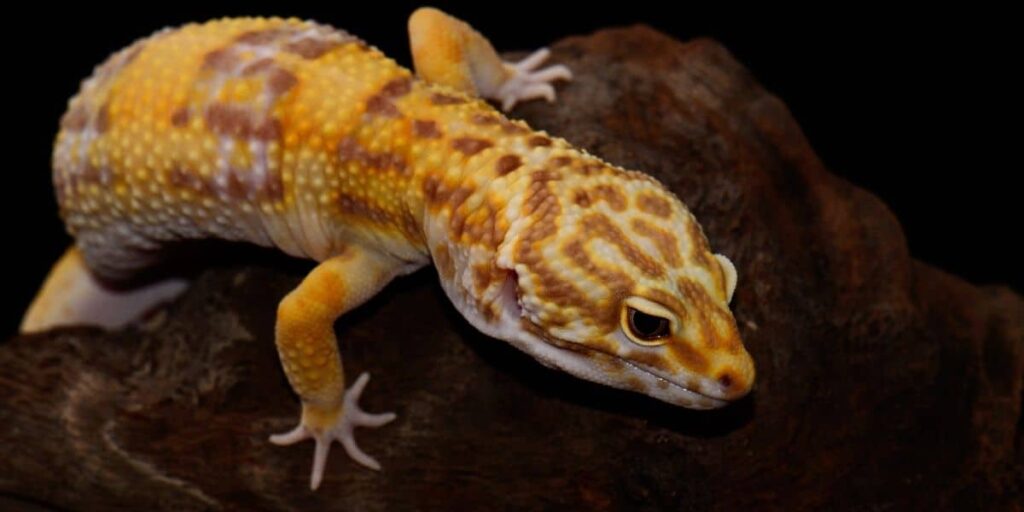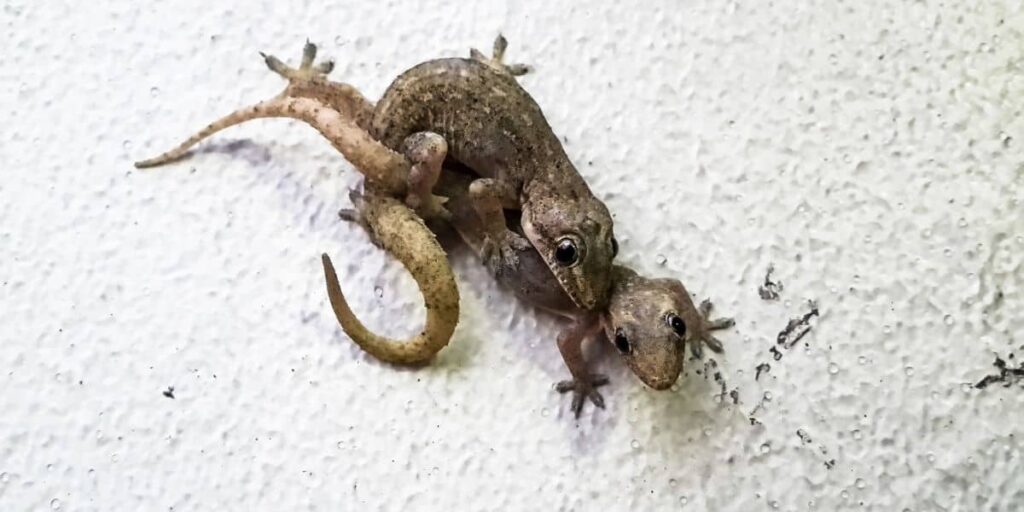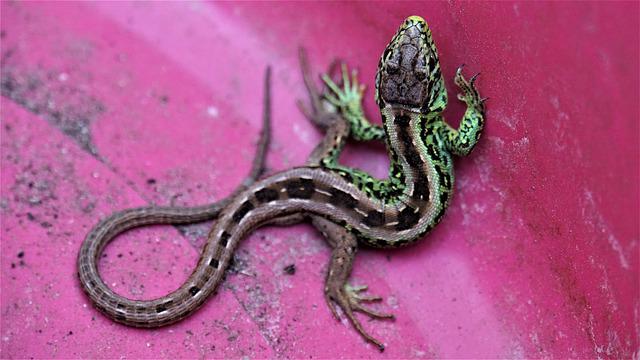Geckos are an incredibly popular exotic pet; if anyone were planning to get their first lizard, they would likely choose a gecko. However, if you are just starting out in the world of reptiles, the last thing you would want is a clutch of eggs and impending lizard parenthood. So, the question on a lot of owners’ lips is do geckos lay eggs without mating?
It is possible for a female gecko to lay eggs even if she has never been in contact with a male. However, these eggs will be infertile; so, there is no concern of any babies arriving any time soon. However, since these eggs will begin to develop fungus after a couple of weeks, it is important to remove them from the enclosure as soon as you know that they are infertile.
The gecko is an amazing creature and aside from randomly laying eggs, there are many other interesting things about the breeding habits of these lizards. So, let’s take a closer look.
My Female Gecko Laid Eggs Without Mating
If you have never owned a gecko before, you may one day find yourself scratching your head when you return to her enclosure to find newly laid eggs. Your female has never even met a male, so how could she possibly have laid eggs? The thing with female geckos is that much like a chicken, they are able to lay eggs even if they have never mated.

Females will typically lay infertile eggs sporadically despite the popular belief that they will produce these every month.
While this is a completely natural process, it is worth keeping an eye on your pet to ensure that laying these eggs isn’t causing any health concerns. Most commonly, you might find that she becomes dehydrated or lethargic, in which case, you will need to have her seen by an exotics vet.
How Do I Know If the Eggs Are Gravid?
Gravid eggs are those that are fertile. While many gecko owners will be able to feel confident that their female has not mated, if you aren’t, there are ways you can check whether the eggs are infertile.
One of the best things you can do is to gently take hold of the egg and shine a bright light on the bottom of the egg. The light should be facing towards you and if they are gravid, you will notice a small pink/red hue.
If you are absolutely certain that your gecko has not mated, then you can happily discard the eggs as you find them. Not doing this will result in a fungus, which appears as a white fuzz, developing on the eggs.
If you are still not sure whether the eggs are gravid or not, it might be best to incubate them and wait and see. If they begin to develop this fuzz, then you can be confident that they do not contain young.
Do Geckos Retain Sperm?
Most people will get their geckos from a breeder while the lizard is still young. In this case, you will have a very good idea of any contact the female has had with males and can be pretty certain that your gecko will not be producing fertile eggs any time soon.
This is particularly certain since these animals do not reach sexual maturity until they reach one year in age.
However, if you have purchased your female gecko as an adult, perhaps from another owner that can no longer take care of her, there could be a chance that she was bred and retained the sperm.
Before adopting an adult female, this is one of the first questions you should be asking. Even if you have no issue with becoming the proud parent of baby geckos, you’ll likely want to be prepared for this.

Female leopard geckos can retain sperm for up to 12 months after mating. What’s even more impressive is that they can retain sperm from more than one male, so if she mated with two geckos, either of them could become the father.
However, the female does not have control over whose sperm she uses, this is purely down to chance. That being said, she is able to retain the sperm to fertilize all of her eggs, so even after one clutch has been laid, there is a chance that another lot of fertile eggs could make an appearance down the line.
A lot of breeders will keep only one male to breed with their females as keeping more than one can lead to confusion. Some people believe that it is possible to create a morph by using the sperm from two different males, but this is not the case.
How to Avoid Unexpected Gecko Babies
If you have purchased your female as an adult and the breeder cannot give you information on her mating background, you should take it as a given that she may give birth to fertile eggs. In a single breeding season, a female gecko could lay up to 16 eggs, sometimes more, and if she keeps laying, that’s a lot of babies.
Before we go any further, it is essential that we point out that when you are buying your gecko, if you are at all unsure whether you would cope with a fertile clutch, you should reconsider taking on the gecko. Thanks to sperm retention, you could end up with a considerable number of geckos.
One of the best things you can do is to keep a spare, small enclosure in case you find yourself with babies.
While geckos can reproduce at an alarming rate, the mothers aren’t incredibly maternal and will probably become very territorial when the eggs hatch, potentially harming or even killing the young. For this reason, it is vital that you have them in a separate enclosure.
Conclusion
If you ever walk into the room where your gecko’s enclosure is and notice that she has unexpectedly laid some eggs, you might be left wondering how on earth this was possible when the female has never mated. Geckos will lay infertile eggs from time to time and, for the most part, this is nothing to worry about.
That being said, it is also possible for geckos to retain sperm for up to 12 months. For this reason, if you do not know the mating history of your pet, you should always check the eggs to make sure that they are not gravid before discarding them.




